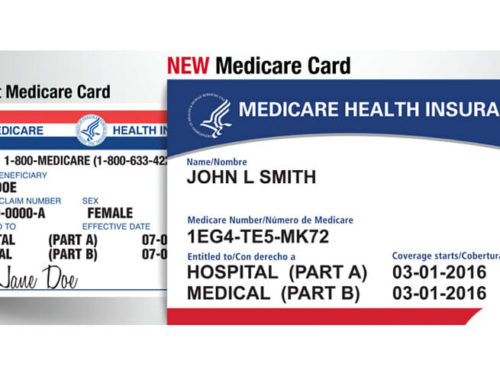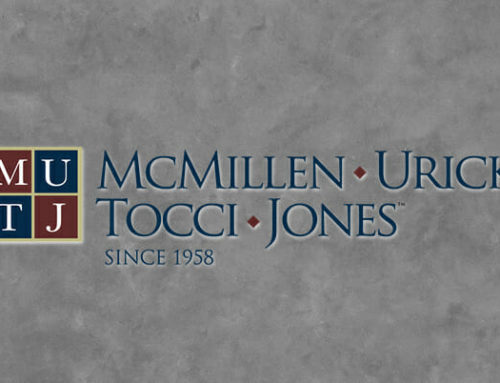The award came as a surprise.
“The Pennsylvania Bar Foundation has been awarded cy pres funding in two instances since 2020,” said Tameka L. Altadonna, PBA governance and Pennsylvania Bar Foundation manager. “It’s a surprise when it happens.”
What is a cy pres (pronounced Sy- PRAY) award?
The term “cy pres” essentially means “as near as possible.” The cy pres doctrine is used by courts to distribute charitable gifts when the intended beneficiary of the gift is unavailable or the bequest is no longer feasible. Rather than invalidate the charitable gift, the court can select a new beneficiary that closely corresponds to the original intent of the donor.
For example, if a decedent established a trust with the intention that, after the death of his or her last living relative, the remaining trust funds go to a specific charity that no longer exists, the court may direct the funds toward a similar charity that fulfills the general charitable intent of the decedent.
The cy pres doctrine has also been applied in the distribution of class-action settlement awards, where either funds go unclaimed or distributing the funds to every individual class member is not cost-effective. In such cases, the court may approve of a beneficiary, such as a charitable organization, that relates to the issue underlying the class action and accounts for the geographic diversity of the class members.
“It isn’t a doctrine that I was familiar with,” said Foundation President Michael B. Jones, McMillen Urick Tocci & Jones, Aliquippa, who is also co-chair of the PBA Bylaws Committee and is treasurer to the Conference of County Bar Leaders. “We were all shocked, wondering, what is this, why are we getting it and how are we getting it? And are we really allowed to keep it?”
Named Recipient
In 2020, the Foundation was named a cy pres recipient in the case of Henderson, et al. v. BNY Mellon, N/A, along with the co-recipient, the Massachusetts Bar Foundation. More than $49,000 was received by the Pennsylvania Bar Foundation. A $10,000 portion of the funds were earmarked for the PBA Unit County Matching Grant Program, with the remaining amount placed in an unrestricted fund to provide support wherever needed.
In 2023, the Foundation was named a cy pres recipient of the class action settlement in the case RE: Angela Roper v. Verizon Pennsylvania LLS., No. 18-cv-5270-EGS, United States District Court Eastern District of Pennsylvania. The Foundation received a distribution of $58,000 that it allocated to these programs:
- Law-Related Education Fund.
- Pennsylvania Interest on Lawyers Trust Accounts statewide Loan Repayment Assistance Program (LRAP) Fund.
- Pro Bono Fund.
- Unit County Grant Matching Program.
- Keystone Endowment Fund.
“As I understand it, the BNY Mellon case involved accounting and investment discrepancies,” Jones said. “The case was settled, and part of the settlement was to allow cy pres funds to be distributed to the Pennsylvania Bar Foundation. The other case, in 2023, was a class-action case involving Verizon. Similarly, there were undistributed funds as part of the class action, and the parties reached an agreement to allocate some of those funds to the Pennsylvania Bar Foundation. When it happens, it is truly a surprise to the recipient.”
“The lawyers did not call us up in advance and say we’re going to be submitting a settlement agreement to the court for approval, and we’re listing the Pennsylvania Bar Foundation as the entity that we are proposing to receive cy pres funds,” said Helen L. Gemmill, McNees Wallace & Nurick LLC, Harrisburg, who serves as the Foundation treasurer. “Instead, we found out after court approval and distribution to the class members was complete. The check shows up in the mail. Of course, we are very grateful for those funds that we use for our mission.”
According to Gemmill, Pennsylvania courts routinely approve class action settlements that have a cy pres component, which allows distribution of excess settlement funds to a third party. As the Third Circuit Court of Appeals has noted:
When class actions are resolved through settlement, it may be difficult to distribute the entire settlement fund, after paying attorneys’ fees and costs along with fund administration expenses, directly to its intended beneficiaries: the class members. Money may remain unclaimed if class members cannot be located, decline to file claims, have died or the parties have overestimated the amount projected for distribution for some other reason. It may also be economically or administratively infeasible to distribute funds to class members if, for example, the cost of distributing individually to all class members exceeds the amount to be distributed. In these circumstances, courts have permitted the parties to distribute to a nonparty (or nonparties) the excess settlement funds for their next-best use: a charitable purpose reasonably approximating the interests pursued by the class.
In re Baby Prod. Antitrust Litig., 708 F.3d 163, 168-69 (3d Cir. 2013). While courts often approve charitable organizations to receive cy pres funds based on the alignment of the organization’s mission with the objectives of the lawsuit, courts also approve distributions to charitable organizations regardless of a specific tie to the litigation claims if the organization serves the public interest through educational and charitable endeavors. Nationwide, courts have specifically approved cy pres distributions to bar foundations that work to improve access to the courts, provide law-related education, and advance the judicial system.
“When class action settlement funds can’t be distributed to class members for whatever reason, those funds end up somewhere else,” Gemmill said. “What the parties and courts try to do is find some place to direct those funds that approximates compensation for whatever injury was allegedly done to the class members. The interests of those class members may be benefitted by an award to the Foundation, which supports programs that increase the public’s understanding of the law and promote equal access to justice.”
The Foundation’s Board of Directors budgets the money it receives, Gemmill said, “to fund the many different things that we do in support of our mission. When cy pres funds come in, they can certainly help us make sure we can give grants to appropriate organizations, provide scholarships, and support the LRAP program.”
Gemmill said there was no restriction on how the Foundation could use the cy pres money it received.
“If it was designated for a particular area, we would obviously honor that designation,” she said. “Because it was not specifically designated, we used it to support various programs of the Pennsylvania Bar Foundation. We looked for really significant needs where we could provide an additional benefit.”
“We could very easily just put it into our operating expenses,” Altadonna said. “But it’s good to put it behind a program that we know is going to do well, such as the Unit County Matching Program. With that program, we’ve given out five grants. The Lycoming County Law Association Foundation received three grants, one in 2024 and two in 2023. The Wayne County Bar Association received a grant in 2022 and the Lancaster County Law Foundation received one in 2021.”
“Our programs may tie into what a class action is about,” Gemmill said. “For example, we provide equal access to justice programs, so if the class action relates to deprivation of legal rights, it might be appropriate to have the cy pres funds come to the Foundation.”
‘Keep Programs Robust’
“We wanted to put this into programs that aren’t necessarily guaranteed funding moving forward, so these monies were critical in keeping some of our programs robust,” Jones said. “This surprise was a perfect solution for our law-related and civics education fund which educates children about Law Day and the U.S. Constitution as well as the high school Mock Trial Program. Those are very worthy educational programs.”
“We’re seeing specific needs right now in civics education, making sure that people understand the role of the courts and the rule of law, and particularly to educate school children,” Gemmill said. “Supporting the LRAP program is vital too. That program helps attorneys working for IOLTA-funded legal services programs afford to remain in public service with potentially forgivable loans. It’s a huge benefit to attorneys devoting their legal practice to representing the needs of people with limited means.”
For potential future cy pres awards, the Foundation may soon consider new strategies in its allocation plans.
“From personal experience with some of my elderly senior relatives recently and seeing the struggles that they have with health care, finances and security, I would like to see if we could partner with the PBA Elder Law Section,” Jones said. “I think that would align perfectly with the cy pres, at least in the area of trust funds, where there may be no beneficiary or there’s no organization that fits with the trust purpose. Taking care of our seniors, and making sure that they’re protected financially, medically and legally, would be an ideal use of cy pres dollars that the Foundation could champion.
“Our community in western Pennsylvania, in particular Beaver County, has a very large senior population, and there’s just not enough help for them,” Jones said.
Unfortunately, there’s not a lot of legal aid.
“Certainly, our scholarships program is a worthy one as well,” he said. “The scholarships program is funded in part by donors, so if it’s a named scholarship, those who set up the scholarship are the mechanism to help fund it. The Foundation will contribute to those scholarships, too.”
Another Foundation program that received a cy pres allotment is the Keystone Endowment Fund.
“Keystone Society members are focused on the Foundation’s future,” Altadonna said. “They are pivotal contributors who are helping the Foundation build an endowment to ensure its longevity and sustainability. Their pledge dollars are earmarked for the endowment fund.”
“Whenever there’s a particular need that is brought to the attention of the board of the Foundation, we have resources in the Keystone Endowment Fund available to meet the need,” Gemmill said. “We use that fund for vital programs across the commonwealth to address needs consistent with our mission, and we bolstered it with cy pres funds.”
‘On the Radar’
“What we have learned from receiving cy pres funds is that we need to do a better job of putting our mission on the radar of the judges and the attorneys involved in these cases,” Jones said. “I can’t tell you in these two specific cases how it came about, whether it was a member of the judiciary that recognized the mission of the Pennsylvania Bar Foundation or the litigants. Our mission is laudable, far-reaching and should easily align with nearly any cy pres award. In those situations, where the opportunity arises, it’s really a matter of the lawyers involved, or the judge recognizing that the Pennsylvania Bar Foundation would be a worthy charitable organization to receive some of those funds.”
“We encourage judges and attorneys to consider the Pennsylvania Bar Foundation as a recipient of cy pres funds in appropriate situations,” Gemmill said.
“I think the Foundation Board does a great job of looking at where the needs are and deciding where is best for us to put this money, depending on the program areas and what their goals are for the year,” Altadonna said. “This isn’t something the board can plan for, until a cy pres award is received. The board did a really good job at allocating the funds across these five different programs last year.”
Gemmill said, “I’ve made it a practice when I’m talking to attorneys involved in class action matters to say, ‘if you need to designate the recipient of cy pres funds, see whether or not the Pennsylvania Bar Foundation makes sense.’”
“We just want to plant the seed and then every so often water it,” Altadonna said. “Much of our fundraising is done through PBA member dues checkoff boxes and donations throughout the year. Then, our fundraising activities raise money. Any additional vehicles that we can capitalize on, that will bring in funds to help us with our work, are welcome. Being named a cy pres recipient is another way that we can take advantage of bringing in funds. If every couple of years we receive $50,000, on average, to do some good work with that money, that’s graciously welcomed. I just want attorneys to think of us when they’re in the middle of those cases.”
To learn more about the Foundation, visit https://www.pabar.org/site/Foundation.






















